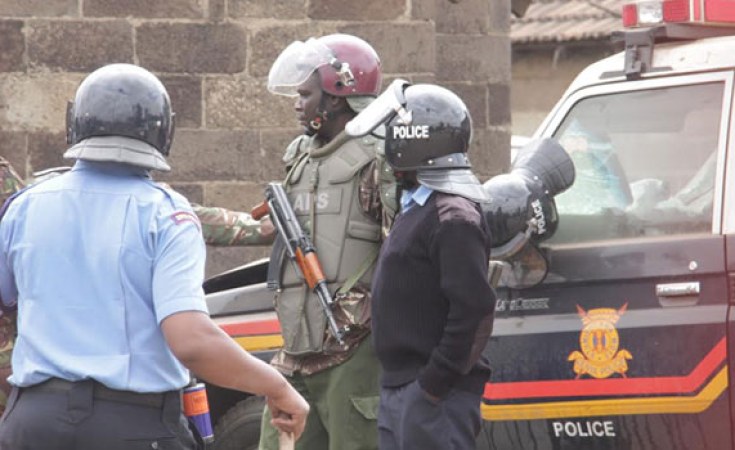Nairobi — The United States now says that it "acknowledges" the recent ruling by Kenya's High Court blocking the deployment of Kenyan police units to lead a Multinational Security Support mission in Haiti.
The high court ruled that the deployment of Kenyan police to the Caribbean nation was unconstitutional, a decision that has cast uncertainty over the UN-backed mission aimed at addressing gang violence.
The Spokesperson for the U.S. Department of State, Matthew Miller, stated on Saturday that while the Joe Biden administration acknowledges the ruling, it welcomes Kenya's intention to challenge the decision.
"We reaffirm our support of ongoing international efforts to deploy a Multinational Security Support mission for Haiti, as requested by Haiti and authorized by UN Security Council Resolution 2699, and renew our calls for the international community to urgently provide support for this mission," Miller said.
Miller reiterated the commitment by the US to support the ongoing peace efforts in Haiti.
Haiti has been grappling with a surge in violence since the assassination of President Jovenel Moïse in July 2021 at his private residence in the capital, Port-au-Prince, triggering calls for a security intervention to complement the efforts of understaffed and under-resourced Haiti national police force.
Highlighting the urgent need for international intervention, Miller called attention to the "unprecedented levels of gang violence and destabilizing forces preying upon the Haitian people."
The U.S. Department of State spokesperson also urged the restoration of democratic order in Haiti through an inclusive political process.
"The only legitimate path to long-term peace and stability is through free and fair elections," Miller stressed, appealing to Haitian stakeholders to reach consensus on power-sharing and inclusive governance.
While delivering the ruling on January 26, High Court Judge Chacha Mwita said that any peace mission outside the country can only be assigned to the Kenya Defence Forces (KDF).
Mwita explained that Sections 107, 108 and 109 of the National Police Act limit the deployment of police officers outside the country to reciprocal arrangements between Kenya and other countries.
He cited Article 240(8) of the Constitution which permits the National Security Council to deploy "forces" on missions outside the country with the approval of Parliament holding that "national forces" mean the Kenya Defence Forces (KDF).
"If the intention of the framers of the Constitution was that the Council should deploy Defence forces, National Intelligence Service and National Police Service, they could have easily stated so and mandated the Council to deploy national forces and services, or national security organs, to capture that intention," Justice Mwita argued.
"In that respect, it is the holding of this Court the Council cannot deploy National Police Service outside the country under Article 240(8) because the mandate of the Council is to deploy Forces, (Kenya Defence Forces) for regional or international support operations and not National Police Service," he reasoned.
Unlike the Kenya Defence Forces Act, Justice Mwita noted that Section 6(2) of the National Police Service Act provides that the Council may deploy the service (National Police Service) or any part of the service in defence of Kenya during an emergency.
"That is the only time the National Police Serviced Act mandates the Council to deploy National Police Service," he explained.
Mwita further explained that Section 6(3) is also clear that for purposes of deploying the Service in case of emergency, "the procedure under Article 58 of the Constitution [on declaration of a State of emergency] shall apply".
He added that other than as provided under Section 6(2), 3 the Council has no mandate to deploy National Police Service even within the country.
The National Assembly approved the proposed deployment to Haiti on November 16, 2023.
The government is banking on Senate's concurrence, with Senators largely expected to back a report by a Joint Security and National Administration Committee of Parliament.
The joint team approved the deployment with a dissenting opinion from Homa Bay Town MP Peter Kaluma who opposed the deployment terming it "unconstitutional and unlawful".
Kaluma argued that the National Police Service (NPS) can only perform its function within the territory of Kenya and that it is not a force for deployment outside the country.


